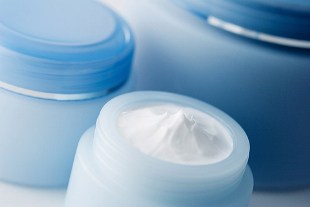Retinoic Acid Fact Sheet
About Retinoic Acid
Retinoic acid is a derivative of vitamin A that is derived from the diet and is stored mainly in the liver, lungs, kidneys and bone marrow.
Vitamin A and its derivatives play a significant role in a number of processes, such as vision, learning and memory, immune function, reproduction and the maintenance of epithelial function.
In the brain, retinoic acid plays important physiological roles in learning and memory and neuron production. In the retina, retinoic acid acts as a light-signaling neuromodulator and has been associated with the regulation of sleep and the circadian rhythm.
Retinoic acid disease prevention and health effects include:
- Skin maintenance and cosmetic treatment
- Cancer treatment
Retinoic Acid and Aging
Retinoic acid behaves as both a chemical and a structural component regulator in the skin. It stimulates healing and supports the production of collagen and elastin that give skin tissue its smooth surface. Both of these properties influence the quality and appearance of the skin, which is generally an issue for people as they age. Additionally, retinoic acid is a natural protectant that shields the skin from the sun’s rays and heals dermatitis and other types of skin rashes. In studies, retinoic acid has demonstrated the ability to improve the appearance of mild to moderate sun damage and gives the skin a more youthful appearance. A review of 12 double-blind randomized controlled trials showed that the retinoic acid cream tretinoin in a concentrations of 0.02% or higher significantly improved fine and coarse wrinkles, roughness, freckles, and pigmentation, and a 0.05% concentration improved mottled hyperpigmentation (7).
Cancer is responsible for approximately 13% of all annual deaths worldwide, and is characterized by uncontrolled abnormal cell growth from malignant tumors which metastasize and spread to bodily areas beyond the point of origin. Common cancers such as stomach, lung, colon, breast and liver are caused by the five leading behavioral and dietary risks of excess body weight, low fruit and vegetable intake, lack of exercise, smoking and alcohol use. Retinoic acid has demonstrated success in the treatment of acute promyelocytic leukemia, a type of leukemia, or cancer of the blood and bone marrow. It is used in combination with chemotherapy and has resulted in a 70-80% cure rate (5).
Oxidation is an additional age-related disease precursor, which environmental pollutants and the over-burdening of the body’s natural stores of antioxidants exacerbate. Healthy cells are damaged when oxygen circulates in the body, and the resulting free radicals are normally neutralized by the body’s antioxidant defense system. In modern times, however, the sheer high-level load of toxins in the environment resulting from stress increases the number of free radical induced mutations in healthy DNA, which if left untreated replicate and develop disease. To compensate for the extra oxidation damage, supplementing with dietary or nutraceutical antioxidants is necessary for preventing disease. Retinoic acid is a form of vitamin A which is one of the best known antioxidants. Research results have suggested that retinoic acid plays a role in brain cell development by stimulating the ability of neurons (nerve cells) to cope with oxidative stress (6).
Supplementing with Retinoic Acid
Retinoic acid is sold as a prescription topical liquid, cream and gel. Retin-A and Tretinoin are commonly prescribed brands. Orally administered retinoic acid for health issues would be prescribed or administered by a physician.
How Much Retinoic Acid Should I Take?
For general skin treatment, the recommended dosage is initially using a 0.01% concentration and gradually increasing if necessary.
Application instructions vary according to the health condition and manufacturers’ instructions.
Side Effects
Taking Retinoic acid supplements can result in the following side effects:
- Sunlight sensitivity
- Red, scaling skin
- Warmth or stinging of the skin
- Lightening or darkening of the skin
Contraindications
A Retinoic Acid supplement may contraindicate with the following medications:
- Medicated or abrasive soaps and cleansers
- Products containing sulfur, resorcinol or salicylic acid, alpha hydroxy acid, glycolic acid,
- Other medications that may increase your sensitivity to sunlight, including fluoroquinolones such as ciprofloxacin, tetracyclines and thiazide
- Water pills (hydrochlorothiazide)
- Sulfa medications (sulfamethoxazole)
- Phenothiazines (chlorpromazine)
- Benzoyl peroxide
References
- Thomas, J. Regan, M.D. et al. Facial Plastic Surgery Clinics of North America. “Effects of Topicals on the Aging Skin Process.” February 2013.
http://www.sciencedirect.com/science/journal/10647406 - Vilhais-Neto, Goncalo C., et al. Current Biology. “Retinoic Acid.” 11 March 2008.
http://www.cell.com/current-biology/abstract/S0960-9822(07)02439-6 - Mayo Clinic. “Tretinoin (Topical Route).”
http://www.mayoclinic.com/health/drug-information/DR60138 - MedlinePlus. “Tretinoin Topical.” http://www.nlm.nih.gov/medlineplus/druginfo/meds/a682437.html
- Ghavamzadeh, A., et al. Annals of Oncology. “Treatment of Acute Promyelocytic Leukemia with Arsenic Trioxide without ATRA and/or Chemotherapy.”8 Aug 2005.
http://annonc.oxfordjournals.org/content/17/1/131.full - Jackson, George, et al. International Journal of Developmental Neuroscience. “Antioxidant Effect of Retinoic Acid on PC12 Rat Pheochromocytoma.” 1991.
http://www.sciencedirect.com/science/article/pii/0736574891900079 - Samueli, Miny, et al. Intervention Review. “Interventions for Photodamaged Skin.” 8 Jul 2009. http://www.ncbi.nlm.nih.gov/pubmed/15674885
Last Reviewed 10/Mar/2014







